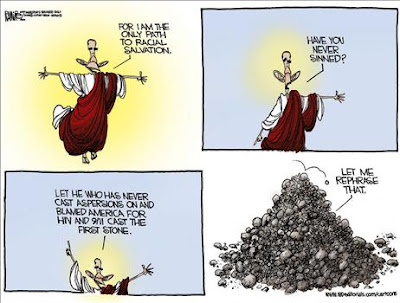Some parents of juvenile detainees, too, have asked that their children remain behind bars so they can continue their schooling, said Stone, the commanding general for US detainee operations in Iraq.
The US military, he added, was not encouraging the trend.
"We don't want them to remain in detention," he said. "When they are no longer considered a threat we want them to go home."
Teachers at the House of Wisdom school at Camp Cropper told AFP recently that parents of juvenile detainees had asked that siblings be locked up with their brothers so they too could benefit from the educational programmes offered at the camp.
According to Stone, more Iraqis are now being released each day from the two detention centres than are being arrested.
This, he said, was a reversal of the situation from April last year when a "surge" in US troop numbers saw a dramatic increase in the number of people being detained in connection with alleged insurgency operations.
The total number of detainees in Cropper and Bucca has decreased from just under 26,000 in April to around 23,000 now, said Stone.
"The release rate has overtaken the intake rate as of February," he added.
According to figures from his unit, on average 20 Iraqis are being arrested each day by US-led forces in Iraq for suspected involvement in insurgency operations while around 50 a day are being freed.
Since September, said Stone, around 6,000 detainees have been released from Camps Cropper and Bucca.
"Only 12 of these have been recaptured," he said, adding that this represented the lowest rate of recidivism over a seven month period since the US-led invasion five years ago.
Stone, who took over command of US detention operations in April last year, attributed the drop in the number of detainees and the reduced recidivism rates to lower levels of violence, his decision to separate hardliners from moderate prisoners and the involvement of the community in rehabilitating newly-released detainees.
The status of detainees is continually re-assessed and each one appears before a review board every six months.
Where there is enough evidence, detainees are transferred to the Iraqi justice system for trial.
Those detained in US facilities are held within the parameters of the United Nations mandate under which coalition forces in Iraq operate and are deemed to be an "imperative security risk."
Detainees in US facilities, on average, spend 331 days behind bars before being released back into their communities.
Of those still in detention, around 2,000 are confirmed Al-Qaeda members and another 7,000 are ideologically close to Al-Qaeda. There are also around 500 juveniles and some 240 foreign fighters behind bars.
Stone defended the US military's decision not to allow UN staff access to detainees, saying it was US policy to give this role to the International Committee of the Red Cross.
"The Red Cross can come in and engage all detainees. That's the process."
© 2008 Agence France-Presse




































.jpg)



.jpg)












